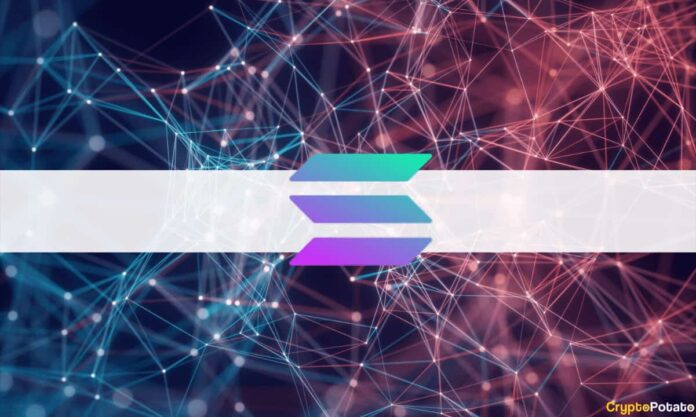Despite adverse market conditions negatively impacting layer-one blockchains, the Solana ecosystem has continued improving its network stability and growing its user base, stated Messari in its Q1 report on the matter. However, noticeable declines in key metrics demonstrate that the Ethereum challenger has faced difficulties maintaining high network activity and volume due to ongoing security concerns.
Noticeable Slowdown
Following the explosive growth in 2021, Solana experienced declines in network usage and financial performance in Q2. The average number of daily transactions decreased by 17.6%, while revenue declined by 44.4% due to degraded network performance QoQ.
However, the number of active users, who paid for at least one transaction per day, reached an all-time high of 450,000 in May, averaging around 320,000 during Q2. In addition, to address the recurring outage issues that destructed the network stability, Solana implemented the early stages of the Mainnet Beta v1.10 Series at the end of May, leading to a subsequent increase in activity.
“For perspective, average daily TPS fell to as low as ~700 during times of degraded network performance. After v1.10 began to roll out, TPS reached all-time highs above 3,000 and averaged closer to 2,300 per day.”
In terms of the number of developers working in the ecosystem, Solana went on following a months-long downtrend with roughly 8,000 active devs in June, nearly 50% below the number recorded for November 2021 – when the whole crypto market soared in an optimistic atmosphere.
DeFi Protocols
Messari viewed Solana as a leading Layer 1 network that has achieved a steady amount of Total Value Locked (TVL), evenly distributed across various DeFi protocols.
In the case of the BNB chain, 50% of the TVL is in PancakeSwap; contrarily, no single Solana application obtained the status as “too big to fail,” with the high-profile protocol Serum accounting for 10% of the TVL at the end of Q2. A greater level of diversified TVL could overall decrease the ecosystem risks, added Messari.
Additionally, Solana’s TVL declined at the average rate (-68%) of the peer group, with some portion possibly stemming from its exposure to TerraUSD and the interruption of Wormhole and Terra transfers. For context, the whole DeFi was in shambles in the second quarter, with aggregate TVL decreasing from $228 billion to $75 billion, representing a 67% decline in USD terms.
NFT Activity
Unlike the slowdown in DeFi volume, Solana-based NFT activity grew drastically, with renowned marketplaces such as Magic Eden and Serum-launched ecosystem grabbing massive attention in the quarter.
The number of newly-minted NFTs on the network increased to 7 million in Q2, representing a 46% growth QoQ. Moreover, only trailing behind Ethereum, Solana maintained its position as the second-largest network ranked by secondary NFT sales volume.
Road Ahead
Looking forward, the crypto research firm expects the upcoming releases of Neon EVM on the mainnet, Solana Mobile Stack, and the advancement of Solana Pay to further expand ecosystem adoption. However, the concern regarding network reliability continues clouding users.
The notorious outages harming the blockchain’s fundamentals and reputation arise from Gulfstream, Solana’s alternative to the mempool for pending transactions. Gulfstream has allowed bots to propose an arbitrary number of transactions, forcing block producers to check all transactions before making a block.
Ultimately, block production continued to suffer in congestion due to the overwhelming number of junk transactions, causing the network to experience greater degraded performance throughout Q2.
As mentioned above, the introduction of the v1.10 series has stabilized the network, but relevant concern still persists in the community.
Binance Free $100 (Exclusive): Use this link to register and receive $100 free and 10% off fees on Binance Futures first month (terms).
PrimeXBT Special Offer: Use this link to register & enter POTATO50 code to receive up to $7,000 on your deposits.
Credit: Source link






















 Bitcoin
Bitcoin  Ethereum
Ethereum  XRP
XRP  Tether
Tether  Solana
Solana  USDC
USDC  Dogecoin
Dogecoin  Cardano
Cardano  Lido Staked Ether
Lido Staked Ether  TRON
TRON  Chainlink
Chainlink  Wrapped Bitcoin
Wrapped Bitcoin  Avalanche
Avalanche  Wrapped stETH
Wrapped stETH  Stellar
Stellar  Toncoin
Toncoin  Sui
Sui  Hedera
Hedera  Shiba Inu
Shiba Inu  WETH
WETH  LEO Token
LEO Token  Polkadot
Polkadot  Litecoin
Litecoin  Bitget Token
Bitget Token  Bitcoin Cash
Bitcoin Cash  Hyperliquid
Hyperliquid  USDS
USDS  Uniswap
Uniswap  Wrapped eETH
Wrapped eETH  Ethena USDe
Ethena USDe  Pepe
Pepe  MANTRA
MANTRA  NEAR Protocol
NEAR Protocol  Aave
Aave  Monero
Monero  Official Trump
Official Trump  Ondo
Ondo  WhiteBIT Coin
WhiteBIT Coin  Internet Computer
Internet Computer  Aptos
Aptos  Mantle
Mantle  Ethereum Classic
Ethereum Classic  Dai
Dai  Cronos
Cronos  POL (ex-MATIC)
POL (ex-MATIC)  Bittensor
Bittensor  OKB
OKB 
